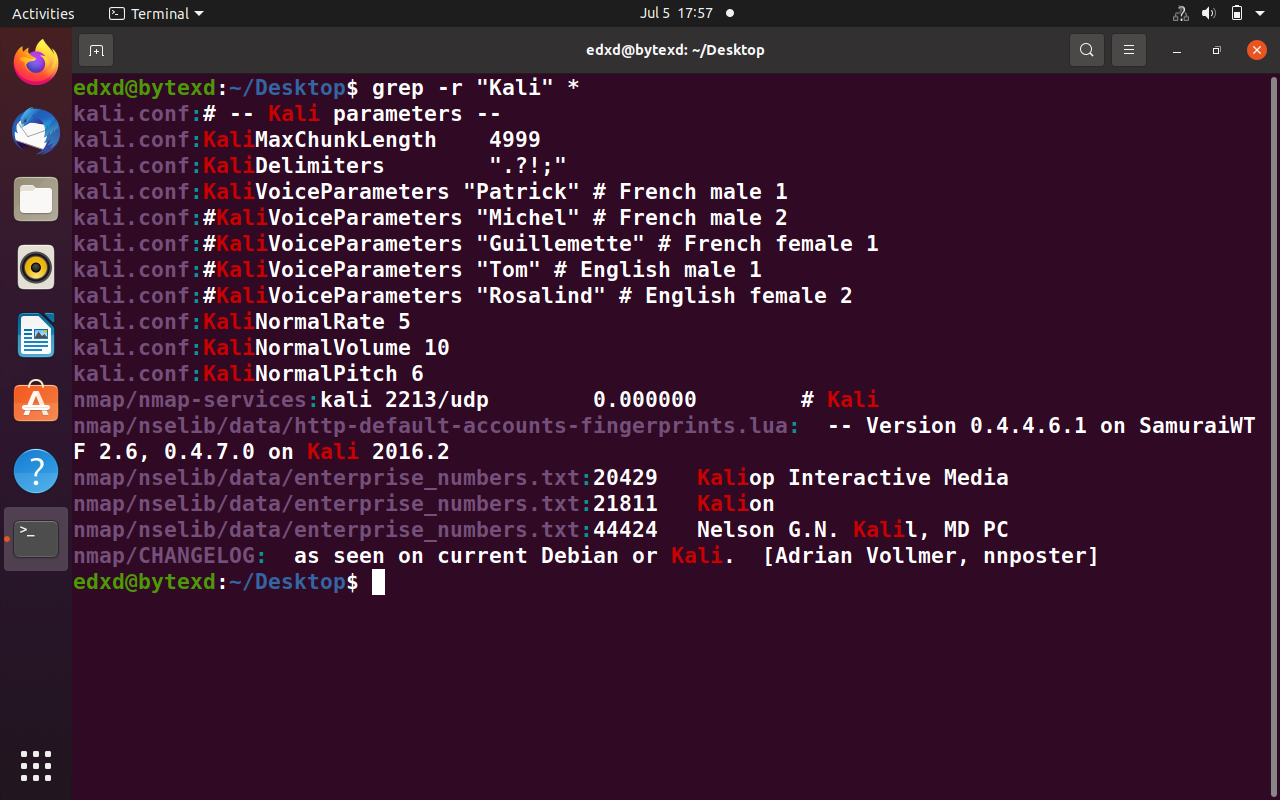
Grep for multiple strings how to#
How to Grep for Multiple Strings and Patterns In this article, we’re going to show you how to use GNU grep to search for multiple strings or patterns. If there are multiple matches ( two or more ), then the function returns. If you are working with pipes in R, check out my top 10 favorite dplyr tips and tricks. grep is a powerful command-line tool that allows you to searches one or more input files for lines that match a regular expression and writes each matching line to standard output. and we would extract the character strings like this : limbs grep ( ' o. Snames %>% grepl(paste(p, collapse = "|"). snames % stringr::str_detect(paste(p, collapse = "|")) With two strings, it is not a lot of work but below is a more efficient approach that will be useful if there is a lot of text patterns. If you want to find out the appearance of multiple strings at once, then first and the simplest approach is a combination of multiple results of grepl. nixCraft: Privacy First, Reader Supported nixCraft is a one-person operation. To search multiple patterns, use the following syntax. We can easily grep two words or string using the grep/egrep command on Linux and Unix-like systems. I know that there is a -o flag that can be used to get only matches. It finds matches correctly, but I can't figure out how to output all lines in a separate file, excluding matches within them.
 Detect combination of multiple strings at once in R What is the command to search multiple words in Linux The grep command supports regular expression pattern. I use the following command to search for such strings: grep -P ' (<>) A-Z0-9\.\s' File.txt.
Detect combination of multiple strings at once in R What is the command to search multiple words in Linux The grep command supports regular expression pattern. I use the following command to search for such strings: grep -P ' (<>) A-Z0-9\.\s' File.txt. In this article, we’re going to show you how to use GNU grep to search for multiple strings or patterns. Overview When we work in the Linux command line, we often use the grep command to search text. There will be two main scenarios – detection of multiple strings simultaneously and any of the given strings. grep is a powerful command-line tool that allows you to searches one or more input files for lines that match a regular expression and writes each matching line to standard output. The awk/ sed/ perl ones don't reflect whether any line matched the patterns in their exit status.Here is how to detect multiple strings in R using base function grepl and alternatives, like str_detect from package stringr. Please beware that all those will have different regular expression syntaxes. Or perl: perl -ne 'print if /pattern1/ & /pattern2/' You'll also need to be familiar with how to reference files by path using the terminal. Or with sed: sed -e '/pattern1/!d' -e '/pattern2/!d' First, you'll need to be able to bring up a terminalon most systems, you do this with the key combination Ctrl + Alt + T, or via the applications menu.
Grep for multiple strings portable#
The best portable way is probably with awk as already mentioned: awk '/pattern1/ & /pattern2/' If the patterns don't overlap, you may also be able to do: grep -e 'pattern1.*pattern2' -e 'pattern2.*pattern1' grep for multiple strings in a single line Ask Question Asked 10 years, 4 months ago Modified 8 years, 11 months ago Viewed 45k times 4 I need to check if any of the strings 'Added/Changed/Fixed/Deleted' are in a commit log message. An example of using grep Let’s take a file called somefile.

For example: last grep -i abc last grep -i uyx I wish the combine the above into one command, but when searching on the internet I can only find references on how to use multiple strings with grep, when grep is used with a file, and not a command.

*s as & matches strings that match both and exactly, a&b would never match as there's no such string that can be both a and b at the same time). J1 min 163 words Andrew Table of Contents An example of using grep An example of using multiple grep s All the ways to use grep multiple patterns If you need to match a string in a file, then grep is your friend. With multiple strings, after using grep on another command.

With ast grep: grep -X '.*pattern1.*&.*pattern2.*' With GNU grep, when built with PCRE support, you can do: grep -P '^(?=.*pattern1)(?=.*pattern2)' To find the lines that match each and everyone of a list of patterns, agrep (the original one, now shipped with glimpse, not the unrelated one in the TRE regexp library) can do it with this syntax: agrep 'pattern1 pattern2'


 0 kommentar(er)
0 kommentar(er)
